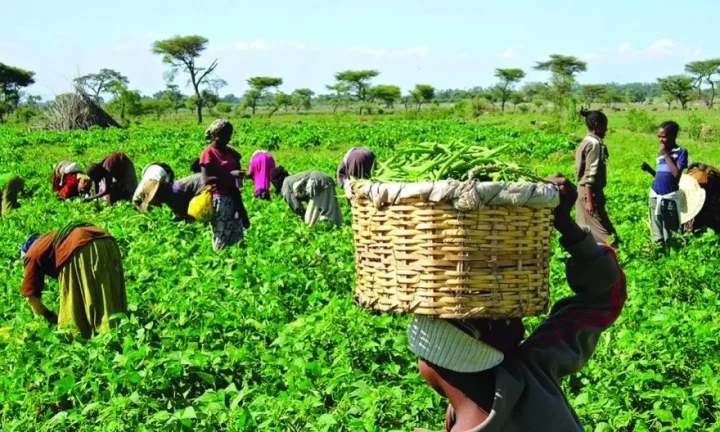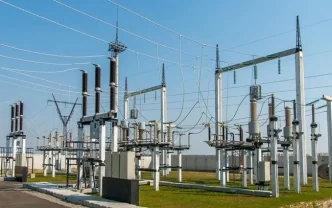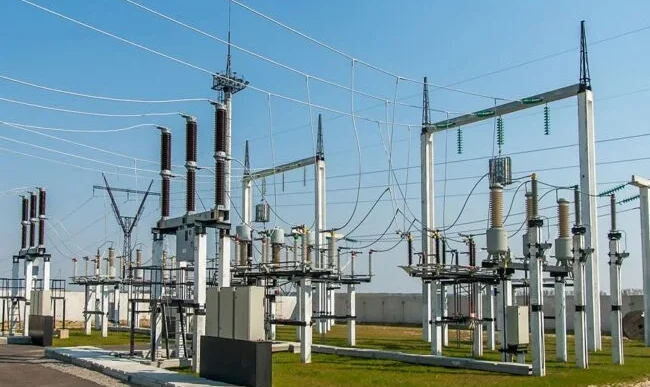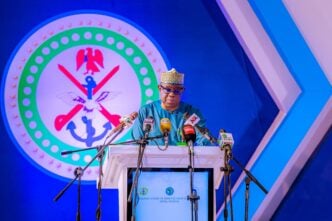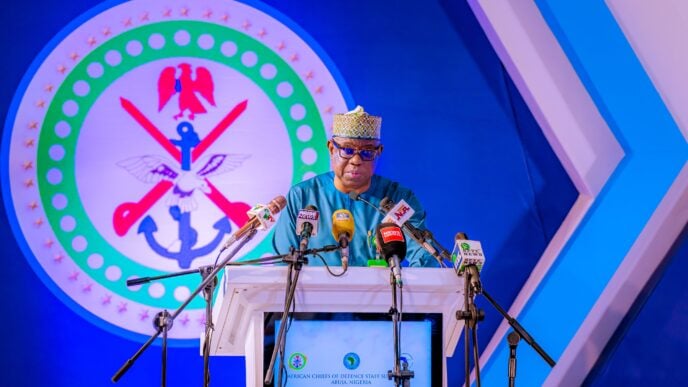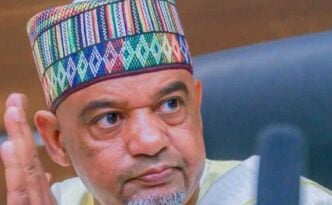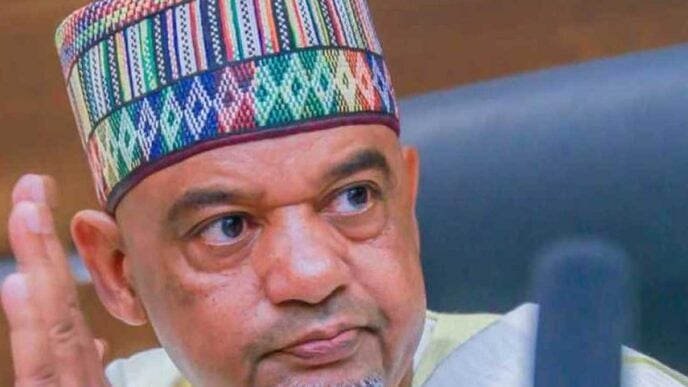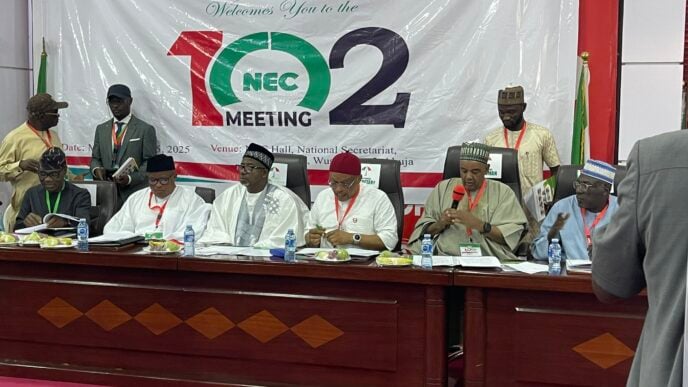Nigeria’s agricultural sector recorded only a marginal growth in the past five years, expanding by just 12 percent between 2019 and 2024, according to a Quartus Economics report.
The report, titled ‘Stalled Growth: Inside Nigeria’s Agriculture GDP’, said the sector rose from N52.8 trillion in 2019 to N59.3 trillion in 2024 but failed to cross the N60 trillion mark.
“In 2024, Agriculture maintained its trajectory of tepid growth with a 2% growth year on year as the sector continues to lag the nation’s population growth,” Quartus Economics said.
According to the report, within agriculture, “none of the 4 industry groups delivered stellar performance during the 5-year period between 2020 and 2024”.
Advertisement
CROP PRODUCTION WEAKENED UNDER TINUBU
TheCable Index analysis of the data showed that while the sector boasted of a slight growth, crop production weakened under President Bola Tinubu‘s government, which was inaugurated on May 29, 2023.
For instance, a subsector examination of the report indicated that growth in crop production slowed from the annual average of 3.75 percent recorded during the prior four years between 2020 and 2023 to 2.9 percent in 2024 alone.
Advertisement
“The industry added an average of around N1.61 trillion annually between 2020 and 2023. In 2024, however, this figure dropped to ₦1.2 trillion in growth”, the report reads.
“Altogether, the industry added N6.44 trillion to GDP over the past 5 years and continues to dominate agricultural output.”
According to Quartus, the fishing line delivered little in terms of contribution, expanding by only 2.4 percent over the last five years.
“Between 2020 and 2023, the fishing industry experienced sluggish growth,” the report said.
Advertisement
“The industry grew by only 3.1% during the period and added only N75.5 billion to its gross production.
“By 2024, the industry fell into decline with a 1% annual drop, which represented a production loss of N15.1 billion in real, i.e. inflation-adjusted terms.”
The report said livestock output rose by N450 billion between 2020 and 2023, but more than half of the value was wiped out in 2024 alone.
The sector declined by 2.1 percent, with a N261.5 billion loss in GDP, according to the firm.
Advertisement
“Climate-related disruptions, insecurity, and inadequate infrastructure, which reduced productivity, greater losses and forced greater reliance on imports to meet demand,” Quartus Economics said.
Quartus said forestry, which lost 8 percent of its 2019 value by 2023, regained only part of its decline with a 3 percent rebound in 2024.
Advertisement
Although the sector recovered about 28 percent of its production loss over the past four years, the economics firm said it remained down by 6 percent compared to 2019, resulting in a combined loss of N159 billion.
‘LACK OF PRODUCTION AFFECTED GROWTH’
Advertisement
Speaking with TheCable, Nelson Okwonna, chief executive officer of Octoville Development Company Limited, said the figures point to falling productivity masked by inflation.
On policy direction, Okwonna also said key productivity levers have not yet been fully activated.
Advertisement
“There are existing programmes, but what is missing is a clear industrial policy for agriculture that ties them together into measurable output growth,” he said.
“We need deliberate policies/plans around land use reforms, mechanisation, improved seed systems, guaranteed offtake, and priority crop development.
“As things stand, the real challenge is not absence of attention, but the absence of a coordinated, productivity-driven framework.
“If addressed, the sector can quickly shift from inflation-led growth to real output expansion.”
On his part, Emmanuel Chukwuma, an agro supply chain expert at Domena Commodities Limited, also said Nigeria’s marginal growth can be traced to “structural, environmental and policy-related challenges”.
“The biggest driver in policy has been imports. There is poor domestic market linkages and producers are increasingly disconnected from processors and markets,” Chukwuma said.
“Nigeria’s agricultural industry experienced strong growth within 2019 to 2023 due to a closure of the border.
“This saw food prices skyrocket and an increase in programs and investment for smallholder farmers which make up over 70% of Nigeria’s agricultural primary production.
“High prices definitely led to a higher GDP output for agriculture within the period.”
‘FG’S 150-DAY DUTY FREE IMPORT POLICY COULD UNDERMINE PRODUCTION’
However, since the coming of the new government, there has been a shift towards stronger import dependence.
The expert said “real and clear support for local production should accompany policies”.
He warned that measures such as the 150-day duty-free window for maize, wheat, rice, sorghum, millet and beans could undermine confidence in local production.
“When the private sector players (farmers, processors, agro-investors) observe that the government may flood the market with cheap imports at any time, they become reluctant to invest in production, expand processing capacity, or finance long-term improvements,” the expert said.
“This stunts innovation, scale, and productivity in the sector.”
Providing recommendations, he called for substantial investments to tackle structural challenges.
Chukwuma recommended investment in mechanisation, ranching, cold storage, post-harvest handling, and irrigation as critical steps to unlock growth.
He also noted that livestock would benefit if grain production improves, since feed accounts for 70 to 80 percent of rearing costs.
Between 2015 and 2023, the Central Bank of Nigeria (CBN) launched large-scale programmes such as the anchor borrowers’ programme (ABP), commercial agriculture credit scheme (CACS), and the agricultural credit guarantee scheme fund (ACGSF), channeling hundreds of billions of naira into crop production and livestock.
The ABP, launched in November 2015 by late President Muhammadu Buhari, was the government’s main agricultural initiative.
The ABP aimed to provide farmers with agri-inputs in cash and kind. The initiative also sought to connect farmers with off-takers, who were expected to pay fair prices.
However, the programme was discontinued in 2023, when the CBN, under the leadership of Olayemi Cardoso, formally ended development financing.
